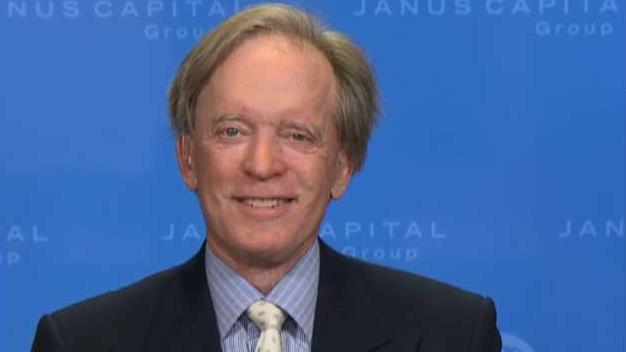Bill Gross: Take a 'Temporary Vacation' from Bonds
Since the United Kingdom voted last Thursday to sever its membership in the European Union, investors have rushed out of risky assets like global equities, turning instead to safe havens like government debt and gold. However, bond king Bill Gross said the moves aren’t necessarily the smartest for those looking for high-quality returns.
“Almost all developed-market bonds have no yield,” he said Monday. “I would suggest a temporary vacation as opposed to rushing out to buy Treasury bonds and hoping they go up in price. I think that is limiting.”
Negative yields in some bond markets, including Germany, present a problem for investors looking for yield anywhere they can find it. Gross said while U.S. debt looks attractive relative to other nations, the risk in high-quality bonds is actually greater because the yields are simply too low.
During Monday’s trading session, the yield on the benchmark 10-year Treasury bond, which moves inversely to price, dropped 0.116 percentage point to 1.461%, hitting a fresh 52-week low. In the wake of the sharp risk-off sentiment across global markets, the yield on the 10-year has seen its biggest two-day decline since November 2011.
But the worst, Gross said, is not over for bond investors yet – there’s still room for U.S. Treasury yields to move even lower.
“I think the 10-year has the chance to go to 1.25%,” he said. “It’s reflective not really of a normal market in the United States, but an abnormal market in the rest of the world. German bunds are trading minus 10 or minus 15 basis points, so Japanese investors will turn to the United States and say, ‘Well, that’s attractive.’”
Ultimately, Gross said the low yields will hurt economic growth and are the product of central banks, including the Federal Reserve, continuing to go full-throttle on easy monetary policies. While many central banks around the world – including the European Central Bank and the Bank of Japan, have gone negative on interest rates, the Fed hasn’t increased short-term interest rates since December. Since then policy makers have pulled back forecasts for at least four rate rises this year to just two or fewer as global economic growth continues to fall behind expectations, and amid unexpected market turmoil thanks to the so-called Brexit vote.
Gross said in light of recent events, he sees any chance of a rate rise in 2016 completely wiped off the table. In fact, he said the global slowdown that’s likely to result from the vote could hit the U.S., and has increased odds of the economy falling into a recession.
He’s not alone in his view. Overall, market expectations as shown by fed funds futures hold just a 16% chance of at least one rate rise in the U.S. by December.
“The dollar is so strong and our ability to manufacture goods and to export them now is at risk, and profits as well,” he explained. “It’s fair to say this is a micro event on a small island the size of Wisconsin, but it’s really a global phenomenon that reflects the future of free trade and immigration, which in turn are reflective of slower economic growth.”




















